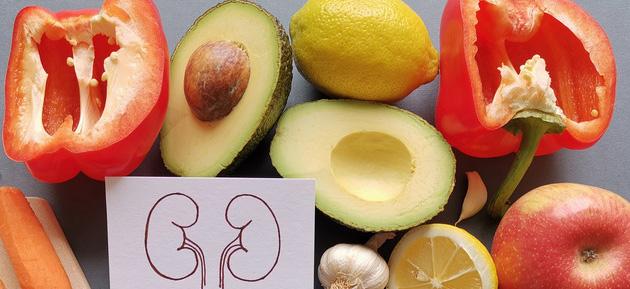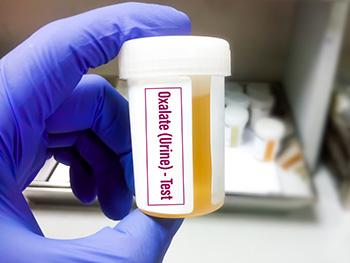
Healthy Foods That Can Cause Kidney Stones
Did you just start eating healthy foods and instead of getting an extra spring in your step, you find that you are suffering from joint pains, mental fatigue, gut problems, and a range of other symptoms? There may be an explanation for these healthy foods making you sick, instead of healing you. Many healthy foods contain oxalates, and you could be eating too many of them.
Here, we will outline what oxalates are, how they affect you, the foods that contain the most oxalates, and the foods that you can eat if you are on a low-oxalate diet.
What are oxalates?
What is an oxalate you might ask? Oxalates are compounds that are found in our food, drinks, herbs, and spices. When our bodies digest these compounds, if we eat too many, there is a chance that our bodies can form kidney stones.
Our bodies also produce oxalates naturally, but the emphasis on the dangers of oxalates is on consuming an excess of them. Experts are still unsure as to why our bodies produce oxalates.
For this reason, oxalates are sometimes referred to as anti-nutrients, as these compounds take nutrients away from your body when you digest them. When there are high amounts of oxalates present in a food source, such as spinach, the oxalates can prevent full absorption of the calcium. The same goes for if you eat a food high in oxalates with fiber, you may not be absorbing all of the nutrients that you think that you are eating.
Why do oxalates exist?
Oxalates exist as a form of protection against extinction for different plants, often oxalates can give foods a bitter or sour taste which makes people and even bugs or animals less likely to eat them. Oxalates can also affect how you absorb and digest foods, this is why sometimes you cannot digest some parts of foods like seeds. This is why when animals, including humans, excrete seeds, they are still viable and can grow into plants.
If there is a very high concentration of oxalates in a food, it can be poisonous and give people stomach issues. This is why it is important to be aware of the quantities of oxalates in different foods. It can be difficult to know how many oxalates exist in specific foods, there is a lot of conflicting information, but we have used only reliable resources to provide information on some foods that have high and low oxalate levels.
What happens when you consume too many oxalates?
Many people believe that they are eating healthy foods and therefore, are improving their diet. They may even wonder why they are feeling worse when a good diet of whole and natural foods should make them feel better and healthier. Oxalates can be found in many different types of healthy foods including things like spinach, chard, and raspberries.

People can start to include much more of these foods in their diet, as an attempt to improve their nutrition, but they end up harming their bodies if they are overeating these foods. If you are trying to eat a healthier diet, it can be really difficult to avoid oxalates.
Most people can eat around 200-300mg of oxalates daily without any serious issues as a result, but some people who have health conditions may not be able to handle this quantity of oxalates and it may impact their health. It is quite impossible to make your diet completely oxalate-free but is rather about managing the quantity of them that you are consuming.
This can be especially severe if you have a condition such as leaky gut syndrome, which means that oxalates have a much higher chance of being absorbed.
What damage can oxalates do?
Oxalates when consumed in high quantities, or when absorbed more by the body can cause a range of serious conditions such as kidney stones, inflammation, and aching in the body.
 If you already have pre-existing issues with your kidneys or you have already had kidney stones, eating a diet that is high in oxalates can be harmful and cause more damage. Kidney stones can be a medical condition that is reoccurring and therefore it is advised that you take precautions with foods that have high oxalate levels.
If you already have pre-existing issues with your kidneys or you have already had kidney stones, eating a diet that is high in oxalates can be harmful and cause more damage. Kidney stones can be a medical condition that is reoccurring and therefore it is advised that you take precautions with foods that have high oxalate levels.
If you have already had kidney stones, your doctor might advise you to stay away from high oxalate foods and to follow a diet that consists of low oxalate foods. For a diet that is low in oxalates, you will need to consume less than 100mg daily, although some doctors will even recommend diets that have less than 50mg of oxalates daily.
If you do find that you need to reduce your oxalate intake, it is highly recommended to do this with care and slowly. You should gradually reduce foods that are high in oxalates, instead of completely removing them from your diet. Oxalates can be stored in your body and if you eliminate all foods that have high oxalate levels, your body may release some oxalates which will increase your symptoms and could cause pain. Try removing one oxalate food source at a time to avoid this.
Symptoms that can occur due to eating too many oxalates:
There are several symptoms that can occur as a result of overconsuming oxalates.

- Joint pains and aches
- Painful urination
- Cystitis that is very difficult to get rid of
- Painful bowel movements
- Depression
- Mental fatigue
- Leaky gut and bloating
- Kidney stones
- Hives
- Insomnia
- Mood swings
Related: Similar to Morphine: The Best Natural Painkiller that Grows in Your Backyard (Video)
Combinations of foods and drinks that can be high in oxalates:
If you are a vegan, vegetarian, or paleo, there is a large chance that you are consuming higher quantities of oxalates, as they are found in many foods that are usually staples of these diets, such as leafy greens, nuts, berries, squashes, and many other fruits.
Additionally, other foods that make up these diets are high in oxalates, such as soya beans, tofu, nut-based plant milk, miso, wheat berries, and couscous. These staple foods and drinks in these special diets, inadvertently lead to higher consumption of oxalates overall in the diet.
10 Foods that are very high in oxalates:
- Spinach is super healthy and has many vitamins, but is just one of the leafy greens that contain higher levels of oxalates and contains around 645mg of oxalate per 100g serving.
- Raspberries are a beloved healthy snack and are great in desserts, however, unfortunately, they do have high oxalate levels, raspberries are one of the berries that have higher oxalate levels, containing around 48mg per cup, making them not so ideal for a low-oxalate diet.
- Sweet potatoes are hailed as one of the healthiest foods and are now often found to be replacing normal potatoes in many dishes, however, they are high in oxalates and contain around 141mg per 4oz serving!
- Dark Chocolate: Delicious and perfect to satiate your chocolate cravings, but high in oxalates! Dark chocolate contains around 39mg of oxalates per ounce.
- Peanuts: There are several nuts and legumes that have high oxalate levels, peanuts are one of the highest nuts, with around 140mg of oxalates per 100g serving!
- Beets and beet leaves are very high in oxalates! For 1 cup of beets or beet leaves, you will get 150mg of oxalate! If you are trying to eat a low-oxalate diet, it is best to avoid this vegetable.
- Several dried fruits contain oxalates, dates are one of the dried fruits that have very high levels of oxalates, with just a single date containing around 24mg of oxalate.
- Kiwi fruit is another fruit that is high in oxalates, kiwi fruit oxalate levels depend largely on where it has been produced in the world, therefore there is no solid number, but on average they contain more than 25mg but less than 100 mg of oxalate per fruit.
- Rice bran is one of the grains that has the highest oxalate content, on average rice bran contains about 139.5mg of oxalate per 100g.
- Rhubarb is known as a delicious addition to your favorite desserts, however, for those adhering to a low oxalate diet, this is not ideal. On average rhubarb contains a whopping 541mg of oxalates per half-cup.
How can you prevent oxalate-related health issues?
- Increase calcium intake, as calcium binds with the oxalates before reaching the kidneys, leaving less chance of kidney stones occurring
- Drink lots of water to help with flushing out toxins
- Eat a diet that is lower in oxalates and actively watch out for oxalate-rich foods
high oxalate foods and drinks
| Fruits | Amount of oxalate | Vegetables | Amount of oxalate | Beverages | Amount of oxalate | Other foods | Amount of oxalate |
|---|---|---|---|---|---|---|---|
| Raspberries | 48mg (1 cup) | Beets | 76mg (per ½ cup) | Plant milk (nut-based Almond) | 27mg (per 1 cup) | Miso | 40g (per 1 cup) |
| Grapefruit | 12mg (per ½ fruit) | Spinach | 656mg (per 1 cup) | Tea (black tea) | 14mg (per 1 cup) | Almonds | 122mg (per 1oz or 22 nuts) |
| Orange | 29mg (per fruit) | Okra | 57mg (per ½ cup) | Tomato Juice | 14mg (per 1 cup) | Bulgur | 86mg (per 1 cup) |
| Kiwi | 16mg (per fruit) | Rhubarb | 541mg (per ½ cup) | Carrot juice | 27mg (per 1 cup) | Cocoa Powder | 67mg (per 4 tsp) |
| Dried Pineapple | 30mg (per ½ cup) | Swiss Chard | 500mg (per ½ cup) | Hot Chocolate | 65mg (per 1 cup) | Tahini | 16mg (per 1tbs) |
| Dates | 24mg (per date) | Navy Beans | 76mg (per ½ cup) | V8 juice | 18mg (per 1 cup) | Wheat Berries | 98mg (per 1 cup) |
| Avocado | 19mg (per fruit) | Turnip | 30mg (per ½ cup) | Soya Drinks | 20mg (per 1 cup) | Buckwheat Groats | 133mg (per 1 cup cooked) |
low oxalate foods and drinks
| Fruits | Amount of oxalate | Vegetables | Amount of oxalate | Beverages | Amount of oxalate | Other foods | Amount of oxalate |
|---|---|---|---|---|---|---|---|
| Bananas | 3mg (per banana) | Broccoli | 6mg (per ½ cup) | Apricot juice | 2mg (per 1 cup) | White Rice | 4mg (per 1 cup) |
| Cherries | 3mg (per 1 cup) | Cauliflower | 1mg (per ½ cup cooked) | Water | 0mg (per 1 cup) | Oat Bran | 0mg (per 1/3 cup) |
| Strawberries | 2mg (per ½ cup) | Peas | 1mg (per ½ cup) | Fresh lemonade | 1mg (per 8oz) | Bluefish | 1mg (per fillet) |
| Apricots | 0mg (per fruit) | Zucchini | 1mg (1/2 cup) | Beer | 4mg (per can) | Bacon | 0mg (per 2 slices) |
| Peaches | 0mg (per fruit) | Bok Choy | 1mg (per 1 cup) | Milk | 1mg (per 1 cup) | Chicken | 0mg (per 3oz) |
| Lemons | 1mg (per wedge) | Artichokes | 5mg (per bud) | Smoothies (with low oxalate fruits) | 4mg (per 1 cup) | Yogurt | 1mg (per ½ cup) |
| Apples | 1mg (per fruit) | Cucumber | 1mg (1/4 cucumber) | Mango juice | 1mg (per 8oz) | Eggs | 0mg (1 medium egg) |
In conclusion, oxalates are found in many very healthy foods, such as leafy greens and berries. The main issue with oxalates is that when they are overconsumed, they can lead to some health problems such as kidney stones, joint issues, fatigue, and a range of other issues. Oxalates are most dangerous for people that have pre-existing health issues such as previous kidney stones and for this reason doctors sometimes prescribe low-oxalate diets. Oxalate levels can be difficult to measure, but given a range of different resources, there is now accurate information for different foods, which can aid people in choosing the right foods to improve their health. For most people, it is not necessary to remove oxalates from their diet, but it is always good to be aware of their consumption.
Key Medicinal Herbs for Kidney Health
- Usnea — One of my favorite medicinal herbs, usnea is a true botanical powerhouse. It has strong antibiotic properties and helps to heal urinary tract, bladder, and kidney infections. It is also antiviral. Moreover, usnea tackles bronchitis, pneumonia, sinus infections, strep throat, colds, and influenza. Make sure to use a dual-extracted usnea tincture, like the one in the apothecary, for full benefit.
- Lungwort Lichen — A medicinal lichen found throughout the world, lungwort is helpful for kidney health because of its ability to flush out excess fluids. It also treats urinary tract infections and encourages detoxification.
- Stinging Nettle — Traditionally used to support kidney health, stinging nettle is high in vitamin C, which helps to flush excess fluids from the body. This is one of the mechanisms that contributes to its anti-inflammatory properties. Stinging nettle is also an outstanding remedy for allergies, rheumatoid arthritis, and eczema.
If you would like to give these herbs a try, you can find usnea, lungwort, and stinging nettle in the apothecary.
You may also like:
What to Eat Every Day to Protect Your Liver (Video)
Hot Or Cold Water? How It Can Affect Your Digestion


Oxalic acid and oxalate interference with nutrient absorption is mostly a gut microbiome issue. One of those myriad gut probiotics is “oxalobacter formigenes”
Kidney stones are most commonly Calcium Oxalate.
If you drink plenty of water with lemon juice, Apple Cider Vinegar, Red and white wine, beer, tea and Coffee, these will reduce and dissolve Calcium Oxalate formation.
You can also take probiotics that include oxalobacter formigenes.
Do you know if there’s an oxalobacter formingenes probiotic commercially available in the USA? A few years ago there was one coming up in Europe, but not in the USA.
Mycotoxins is something you need to be careful of. https://www.immanencehealth.com/8-foods-high-in-mycotoxins
A naturopath told me that drinking water with fresh lemon (about 2 lemons per gallon) and taking 18 hydrangea capsules (Nature’s Sunshine has them) per day, 6 at a time will dissolve stones. We passed on the info to someone who was set for surgery and he said it worked so well that he canceled his surgery.
Are gallstone stones affected by oxalate as are kidney stones?